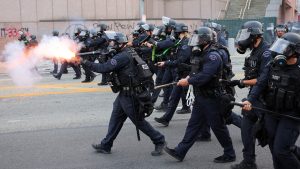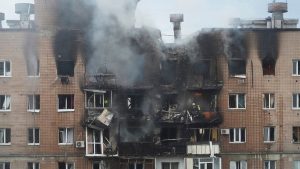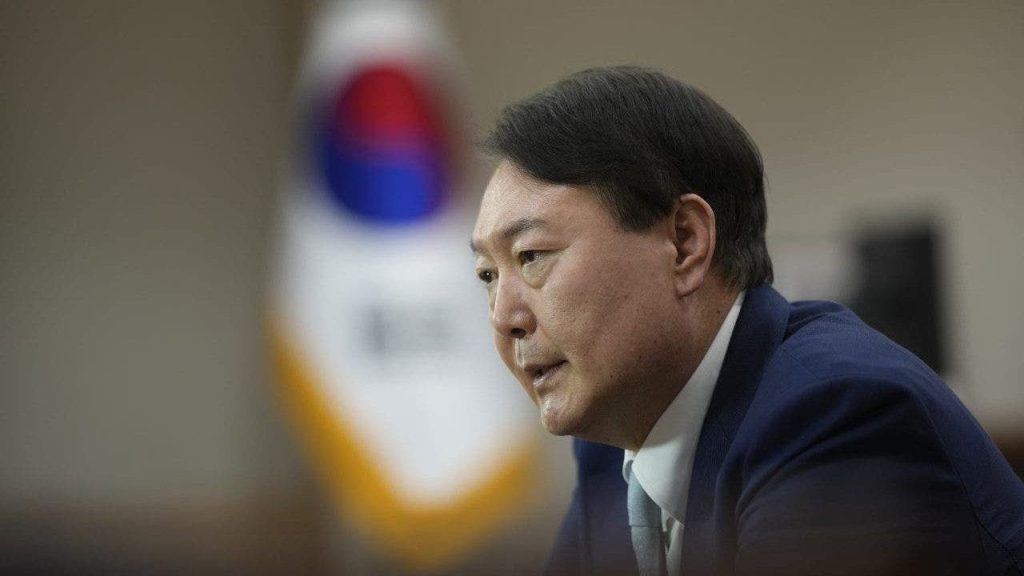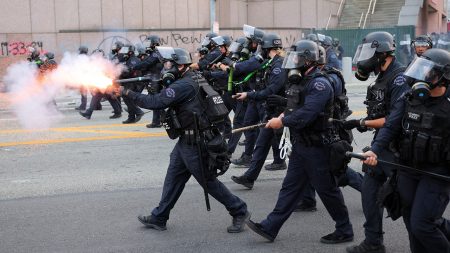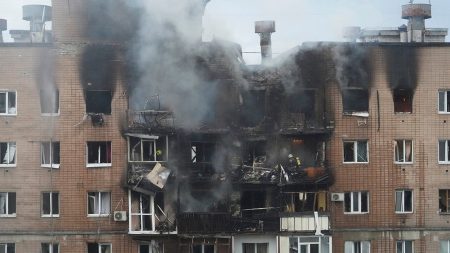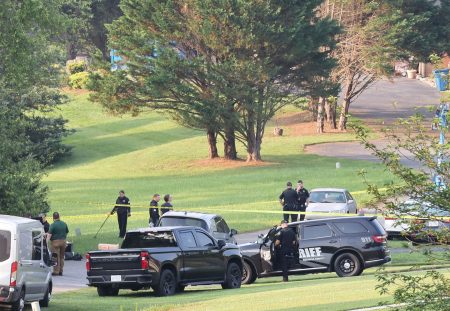The political landscape of South Korea, Asia’s fourth-largest economy and a key US ally, has been thrown into unprecedented turmoil with the issuance of arrest warrants for impeached President Yoon Suk Yeol. This marks the first time a sitting South Korean president has faced such a legal challenge, stemming from a criminal investigation into his controversial martial law decree earlier this month. The warrants, approved by the Seoul Western District Court, authorize the detention of President Yoon and the search of his office and residence. The investigation, led by the Corruption Investigation Office for High-Ranking Officials in conjunction with police and military authorities, centers on whether Yoon’s declaration of martial law constitutes rebellion, a charge that carries the weight of the death penalty or life imprisonment upon conviction. Yoon’s lawyer has vehemently denounced the warrants as “invalid” and “illegal.” The president’s current location remains undisclosed, and he is prohibited from leaving the country. Adding to the complexity of the situation, President Yoon possesses presidential immunity shielding him from most criminal prosecutions, but this immunity does not extend to accusations of rebellion or treason.
The controversy surrounding President Yoon’s actions stems from his abrupt imposition of martial law on December 3rd. Citing the need to eliminate “anti-state” forces, Yoon implemented the decree after facing significant challenges in advancing his agenda through the opposition-dominated parliament. This move sparked immediate backlash, with critics arguing that the declaration was unconstitutional, given that South Korean law permits the enactment of martial law only during wartime or comparable emergencies. Furthermore, the president does not possess the authority to suspend parliamentary operations even under martial law. The National Assembly swiftly acted to overrule the president’s decision, effectively lifting the martial law after only six hours. However, the political fallout continued to escalate, culminating in the impeachment motion filed against President Yoon.
The impeachment motion against President Yoon, submitted by lawmakers, specifically targeted his martial law declaration. Han Dong-hun, the leader of the People Power Party, publicly criticized the decree as unconstitutional. Prior to the parliament’s overruling of the martial law decree, President Yoon had deployed hundreds of troops and police officers to the National Assembly in an apparent attempt to impede the vote on his decision. While no major violence erupted, the deployment fueled public protests, with demonstrations both opposing and supporting Yoon. The National Assembly ultimately voted to impeach Yoon on December 14th, amidst continued heightened security presence at the assembly.
The political upheaval in South Korea has not been limited to President Yoon. Prime Minister Han Duck-soo, who assumed the role of acting president following Yoon’s impeachment, was also impeached by parliament after failing to appoint three justices to the nine-member Constitutional Court. The implications of these vacancies are significant, as President Yoon’s removal from office hinges on the Constitutional Court upholding his impeachment, requiring the support of at least six justices. Some experts suggest that filling the vacant justice seats could increase the likelihood of Yoon’s impeachment being confirmed. The next hearing in Yoon’s Constitutional Court case is scheduled for Friday. Adding further complexity, Kim Yong-hyun, Yoon’s former defense minister who played a key role in the martial law decree, has been detained and indicted on charges of insurrection and abuse of power.
Compounding the political crisis, South Korea is grappling with the aftermath of a devastating plane crash. A Jeju Air Boeing 737-800 crashed on Sunday, claiming the lives of 179 people. The aircraft landed without its front landing gear deployed, overshot the runway, collided with a concrete fence, and erupted into flames. Newly appointed acting President Choi Sang-mok is leading a task force investigating the disaster. The confluence of the presidential impeachment, the ongoing criminal investigation, and the tragic plane crash has created an extraordinary period of instability for South Korea.
The unfolding situation in South Korea carries significant implications not only for the country domestically but also internationally, given its position as a key US ally and a major economic power in Asia. The political future of President Yoon hangs in the balance as the Constitutional Court prepares to hear his case. The outcome will undoubtedly shape the country’s political trajectory in the coming months and years. The simultaneous challenges of political instability and the aftermath of a major air disaster present a formidable test for South Korea’s resilience and governance. The international community will be closely watching the developments in this crucial East Asian nation.
